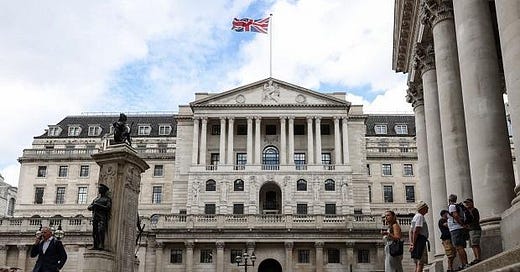With the Fed’s announcement ending easy money last Wednesday, they have paved the way for other major central banks to act in concert. On Thursday morning, the Bank of England surprisingly raised rates by 25 basis points. BOE was the first major bank to raise rates from the prevailing interest rates cycle. The ECB was not that far behind. They have also announced an end to its pandemic/emergency asset-buying program by March. BOJ decided to stay put as they felt it was not necessary to rush through any policy change at the moment.
Having said that, the emerging market central banks were always on the move throughout the year in raising rates. They don’t have the luxury of representing 90% of the world’s foreign currency reserves like the US, UK, Europe, and Japan. They cannot take any chances with inflation and they had to act. Mexico, South Africa, South Korea, Chile, Brazil, Hungary, NZ, Norway, Poland, Russia, and Turkey all have been raising rates to fight inflation and curtail capital flight. With the major central banks joining the fray, the monetary policy direction is more or less an official move.
What does this do to the stock markets? The high multiple stocks are most vulnerable to interest rate hikes. The no-earnings and innovation story stocks could also get hit severely. Money has already been moving out of the technology (high-multiple stocks) and consumer discretionary (a beneficiary of stimulus packages) and into financials and commodity-related stocks. A rotation from growth to value should eventually play out. How long will this last?
To understand that, one needs to discern how aggressive the central banks’ tightening will be. Fed wants us to clearly believe that the cycle won’t be aggressive. To prove their point, they keep on pointing to the supply-chain disruption as the main factor driving inflation. It is a good assumption but there is much more to rampant inflation ahead. The Fed has already made the mistake of announcing that there could be three hikes next year. Recent past examples are clear that they had to eat their own words.
There is a big leveling and wealth redistribution likely to materialize as we cruise further into the Web 3 era. This was the main takeaway for me from the three-day Blockchain World conference that I attended in Abu Dhabi. This is going to be inflationary!
So, there we go. Thanks for reading Breezy Briefings. If you enjoyed this, I'd really appreciate it if you could take a second and tell a friend. Honestly. It makes such a big difference.
Forward this email. Recommend the newsletter. Share on Twitter, WhatsApp, Telegram, LinkedIn, Slack, wherever!
Join Breezy Briefings’ Official Telegram Channel: https://t.me/BreezyBriefings
Abraham George is a seasoned investment manager with more than 40 years of experience in trading & investment and multi-billion dollar portfolio management spanning diverse environments like banks (HSBC, ADCB), sovereign wealth fund (ADIA), a royal family office and a hedge fund. Currently, he is setting up a hedge fund where foreign citizens can invest in Indian growth stocks like Tanla operating in hyper-growth markets like CPaaS.



